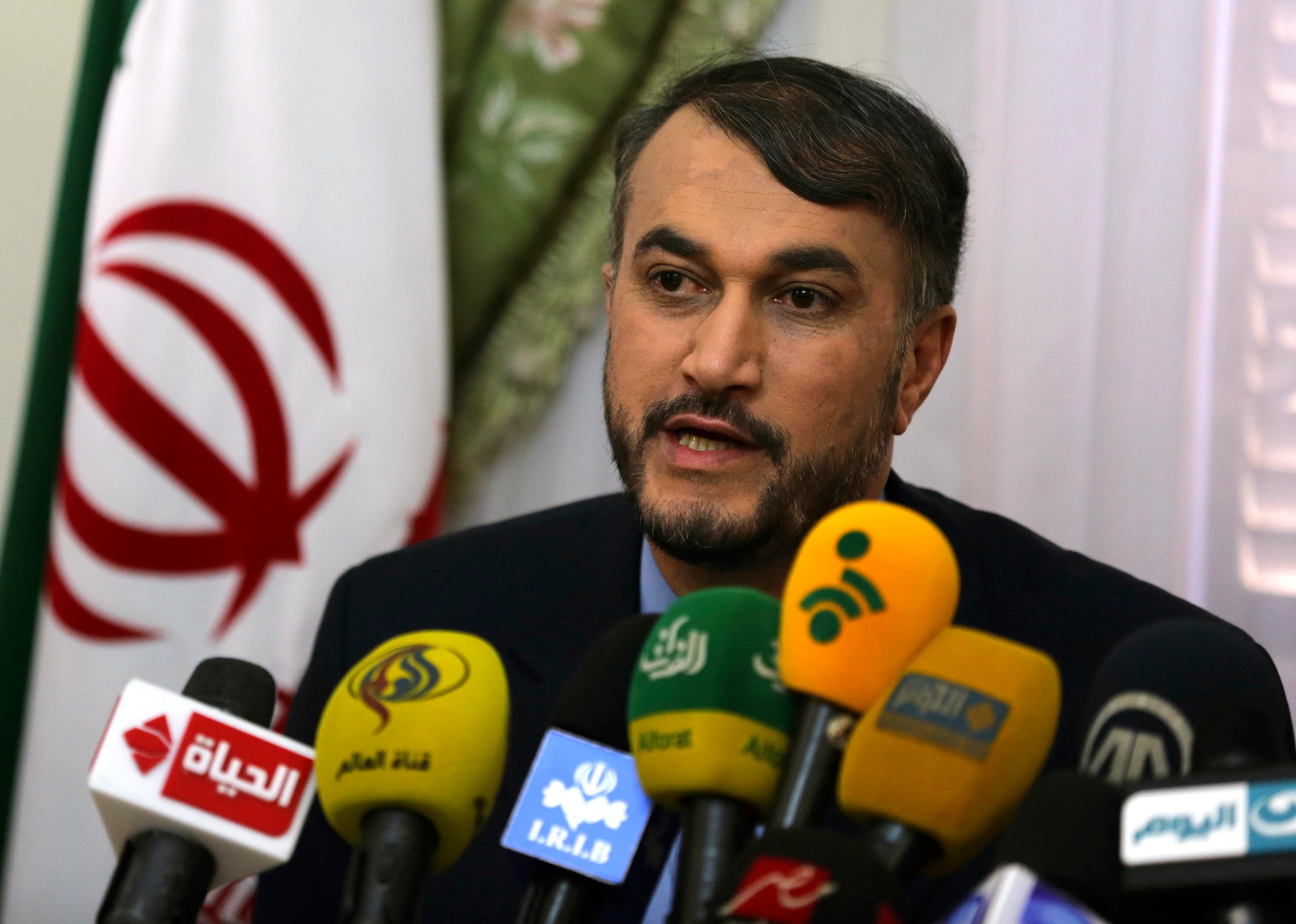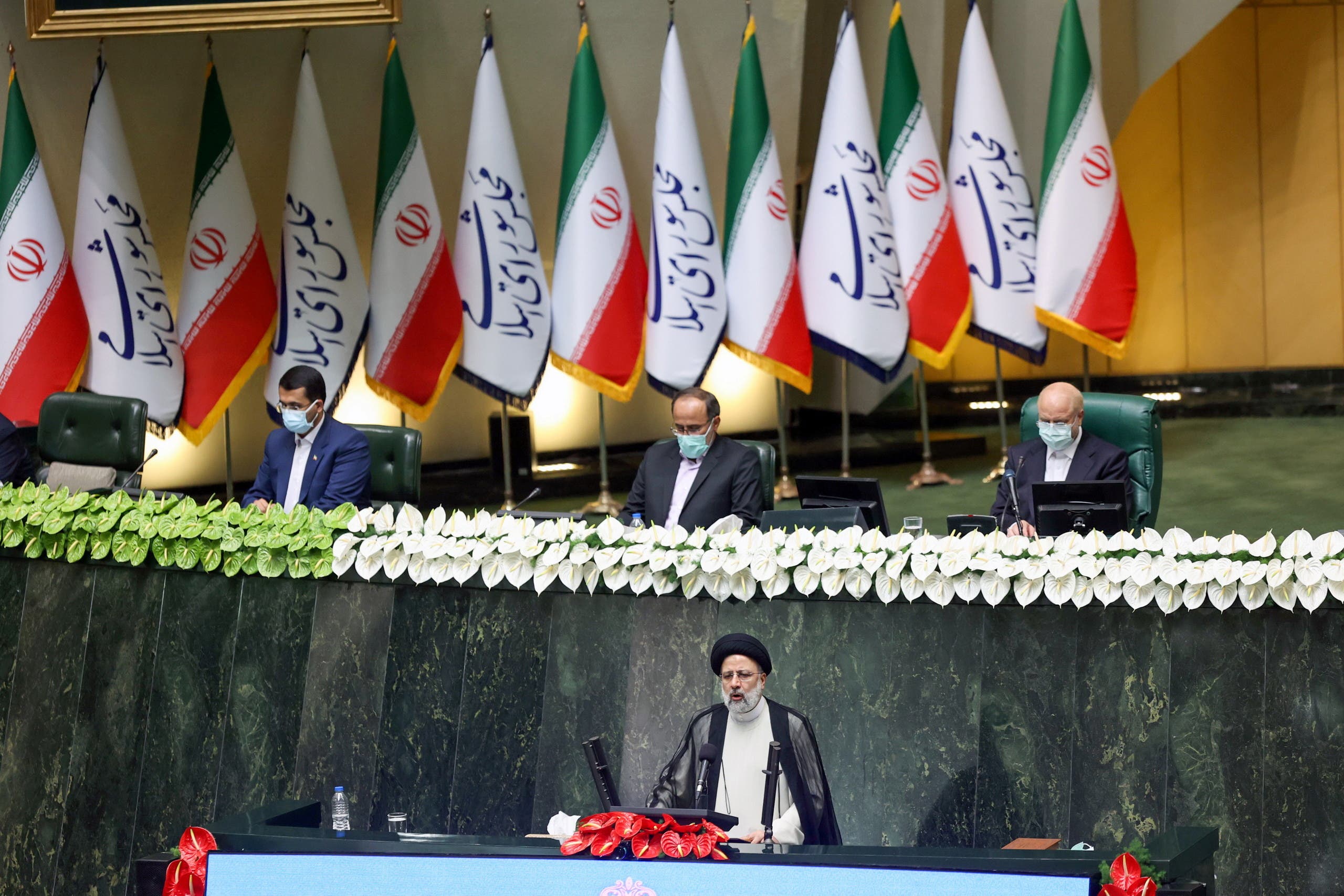Al-Arabia – Iran’s new president Ebrahim Raisi unveiled his cabinet on Wednesday, naming a diplomat sceptical of the West and with close ties to the Islamic Revolutionary Guard Corps (IRGC) as his foreign minister.
Raisi submitted his cabinet nominations to parliament, which is required to review and approve the nominations. Raisi’s choices are unlikely to face any opposition from a parliament that is considered ideologically aligned with the president.
For the latest headlines, follow our Google News channel online or via the app.
Raisi has chosen Hossein Amir-Abdollahian, currently an advisor to the speaker of parliament for international affairs, as his foreign minister.
Amir-Abdollahian had been present in Raisi’s meetings with foreign guests in recent days in Tehran, fuelling speculation about his role in the new government.
Born in the city of Damghan, Semnan province, in 1964, Amir-Abdollahian holds a doctorate in international relations from the University of Tehran and is fluent in Arabic and English, according to the semi-official Fars news agency.
Amir-Abdollahian served as Iran’s ambassador to Bahrain from 2007 to 2010.MIDDLE EASTIran’s Raisi unveils new cabinet: IRNA
In 2011, under former president Mahmoud Ahmadinejad, Amir-Abdollahian was appointed deputy foreign minister for Arab and African affairs, a position he retained for three years in the next government before being dismissed by outgoing Foreign Minister Mohammad Javad Zarif.

Hossein Amir-Abdollahian speaks during a news conference in Cairo. (File photo: Reuters)
Since then, he has served as an advisor for international affairs to two different speakers of parliament.
Amir-Abdollahian is said to have close ties to the IRGC and its overseas arm, the Quds Force. He was particularly close to the former head of Quds Force, Qassem Soleimani, according to Iranian media. Soleimani was assassinated by the US in 2020.
Analysts believe Amir-Abdollahian’s selection reflects the new government’s lack of interest in improving relations with the West.
“I think Amir-Abdollahian’s nomination reflects the closeness of Raisi’s administration to the IRGC as well as Tehran prioritizing regional relations over building ties with the West,” Jason Brodsky, a senior Middle East analyst at Iran International TV, told Al Arabiya English.
“Amir-Abdollahian is known for his ties to the IRGC – particularly when Soleimani was alive – and his service in the Iranian diplomatic apparatus has centered on Iran’s relations with its neighbors,” said Brodsky.
Last month, Amir-Abdollahian wrote on Twitter that under Raisi, the priorities of Iran’s foreign policy will be to have “balanced foreign relations, active, dynamic relationships with the East and the West along with particular attention to neighboring states and Asia.”
Raisi said during his inauguration ceremony last week that his top priority in foreign policy will be to improve ties with neighboring countries.

Iran’s new President Ebrahim Raisi speaks during his swearing-in ceremony at the parliament in Tehran, Iran, August 5, 2021. (Reuters)
“Relations with the West will not improve, and military and diplomatic activities will increase in Latin America, Africa, the Middle East and Central Asia,” Mehdi Jalali-Tehrani, an Iranian analyst and international security expert, told Al Arabiya English. “Relations with China and Russia will also expand.”
But Amir-Abdollahian’s appointment will not bring about any major changes to Iranian diplomacy, according to Jalali-Tehrani.
Noting that Supreme Leader Ali Khamenei – not the president or foreign minister – makes the final decisions on foreign policy, he said: “Zarif and Amir-Abdollahian have their differences, but as Zarif said in his leaked audio recording a few months back, he never disobeyed Khamenei and the IRGC even if he personally disagreed with them. He was implementing Khamenei and the IRGC’s orders all along. So, no change there.”
Amir-Abdollahian’s appointment comes amid efforts to revive the 2015 nuclear deal.
The US and Iran have engaged in indirect talks in Vienna since April to revive the deal. Washington withdrew from the deal under former President Donald Trump in 2018, reimposing sanctions that have crippled Iran’s economy.
The last round of talks took place on June 20, and it is not yet clear when the talks will resume.
“To realize the lifting of US “max sanctions” against Iran, we need to stick to “max demands” in the negotiations,” Amir-Abdollahian wrote on Twitter in April, weeks after the Vienna talks had begun.
Amir-Abdollahian is not as experienced with the nuclear file, according to Brodsky, and it remains to be seen whether the foreign ministry will remain in charge of the file as it did under former president Hassan Rouhani. Before Rouhani, the Supreme National Security Council (SNSC), Iran’s top security body, oversaw the nuclear file.
“Amir-Abdollahian doesn’t have as much experience with the nuclear file, and that could be a sign that the file will be transferred to the supervision of the SNSC rather than the foreign ministry. But that last part remains unclear, and that will provide the biggest clue as to exactly what Amir-Abdollahian’s mission will be in the new administration,” said Brodsky.
 Shabtabnews In this dark night, I have lost my way – Arise from a corner, oh you the star of guidance.
Shabtabnews In this dark night, I have lost my way – Arise from a corner, oh you the star of guidance.



